Honoring our History – Remembering Clinton B. Ford

On October 26, 2002, three members of ACMP, Stephen Symchych (Vn) Newton, MA, Martha Jaffe (Vn/Va), Newton Center, MA, and William Simmons (Vc) ,Woods Hole, MA, took part in a performance of the Brahms Sextet in G Major, Op. 36, to honor the memory of Clinton B. Ford. The performance was sponsored by The American Association of Variable Star Observers (AAVSO), a group that represented Clinton B. Ford’s other passion in life, Astronomy.
Bill Simmons said, “We performed at the final banquet dinner in Somerville (a few miles east of the AAVSO’s Headquarters in Cambridge, MA) after three solid days of scientific meetings. It was a splendid occasion in every way. I hadn’t known it previously, but apparently Clint and his pals often performed at the AAVSO’s annual meetings, and when they didn’t perform, they’d hole up in their rooms after scientific sessions and play into the wee smalls, often with entourages of AAVSO groupies listening. Thus, this was an especially nostalgic performance for them, and they really loved it, as did we.”
Who was this man who loved music and stars? He said of himself, “Most people are unaware of it, but an important event for them took place on March 1, 1913, the date when the first permanent peace-time federal income tax took effect. A simultaneous unimportant event was my birth. I came in with the Income Tax. I’d like to say that when I go out, I’ll take it with me. Some things really are impossible.”
Clinton Ford’s “burn for Astronomy” started in his youth under his father’s tutelage at the University of Michigan’s Observatory. By the age of 14, he had observed his first variable star, and became the youngest person ever to be admitted as a member of that group. His unvarying interest in music also started in childhood with violin lessons. In his autobiographical sketch for AAVSO, Some Stars, Some Music, (AAVSO, 1986) Ford said “When my grandfathers’ brother, a Civil War veteran, a grand old man who everyone called Uncle Clinton, learned that his namesake was playing the violin he gave me his own violin. It was no Strad, but it was better than the “cheese-box” my father had, on which I was scratching out the rudiments.”
Some of Clinton Ford’s happiest musical memories were at his family house, “The Manse” in Ovid, New York, near Cayuga Lake. He would host musical house parties at which marathon sessions of chamber music would be interspersed with delicious meals that he loved to prepare on an outdoor stone grill. He moved to Connecticut in his later years and played viola in the Stamford Symphony and chamber music with ACMP Board member William Selden (Vla-A, Vl- B), Westport, CT.
Clinton B. Ford died on September 23, 1992, sixty-five years to the day on which he made his first variable star observation.
His bequest to ACMP was a total surprise that amazed the Board and even made them slightly apprehensive. After all, ACMP had never been about money. An organization devoted to playing chamber music for pleasure has few needs beyond a modest budget to maintain records and publish the Directory. What should we do? How best to use these resources? How to adapt to change without losing our basic identity and values? After intensive thought and debate, the ACMP Foundation was created.
First published ACMP Newsletter, December 2002
More Articles
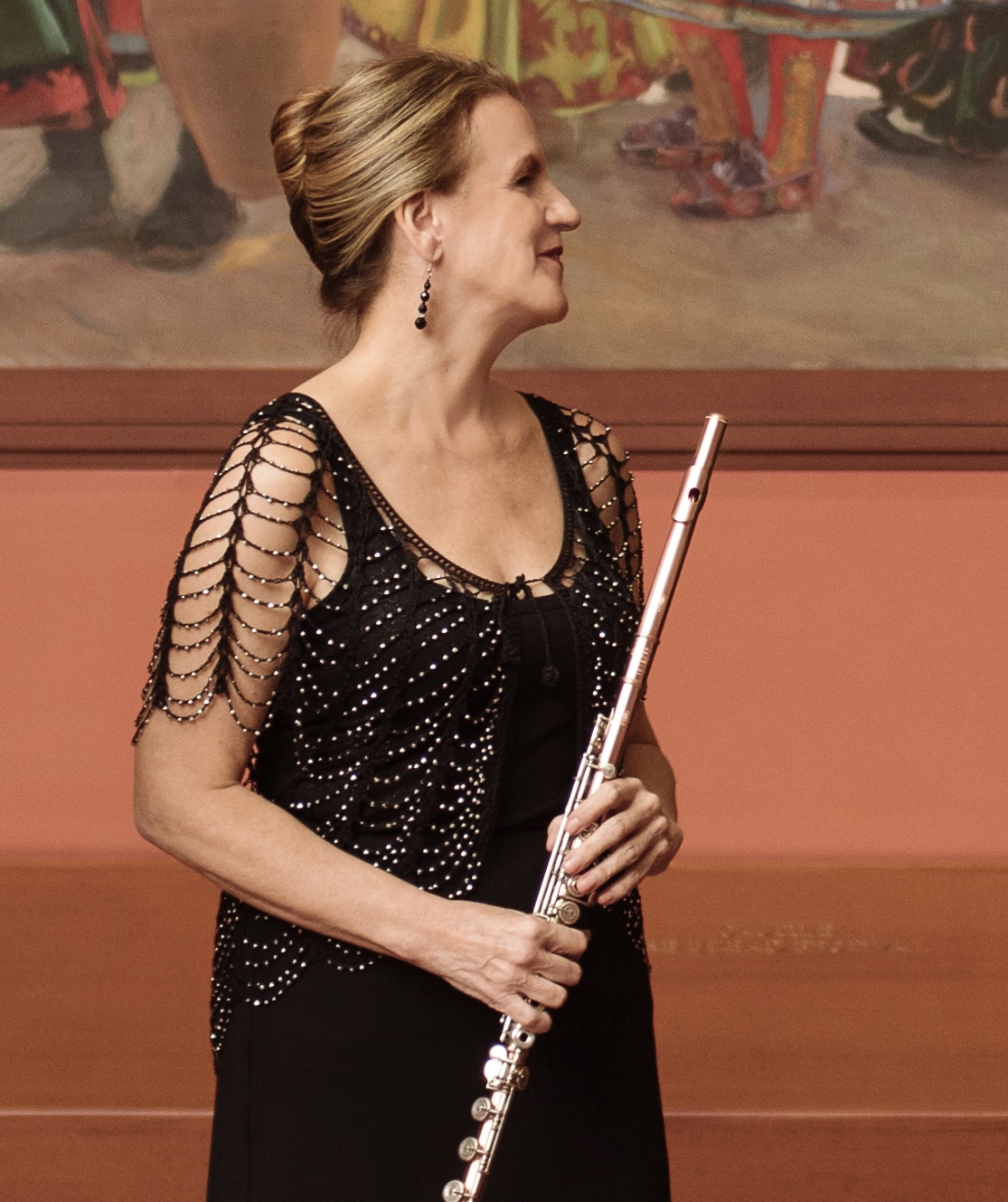
Meet the Musician: Flutist Svjetlana Kabalin (Sunday, March 29, 2pm ET)
Join ACMP for an interview and Q&A with Svjetlana Kabalin on founding and sustaining Sylvan Winds and expanding wind quintet repertoire.Read More ↗
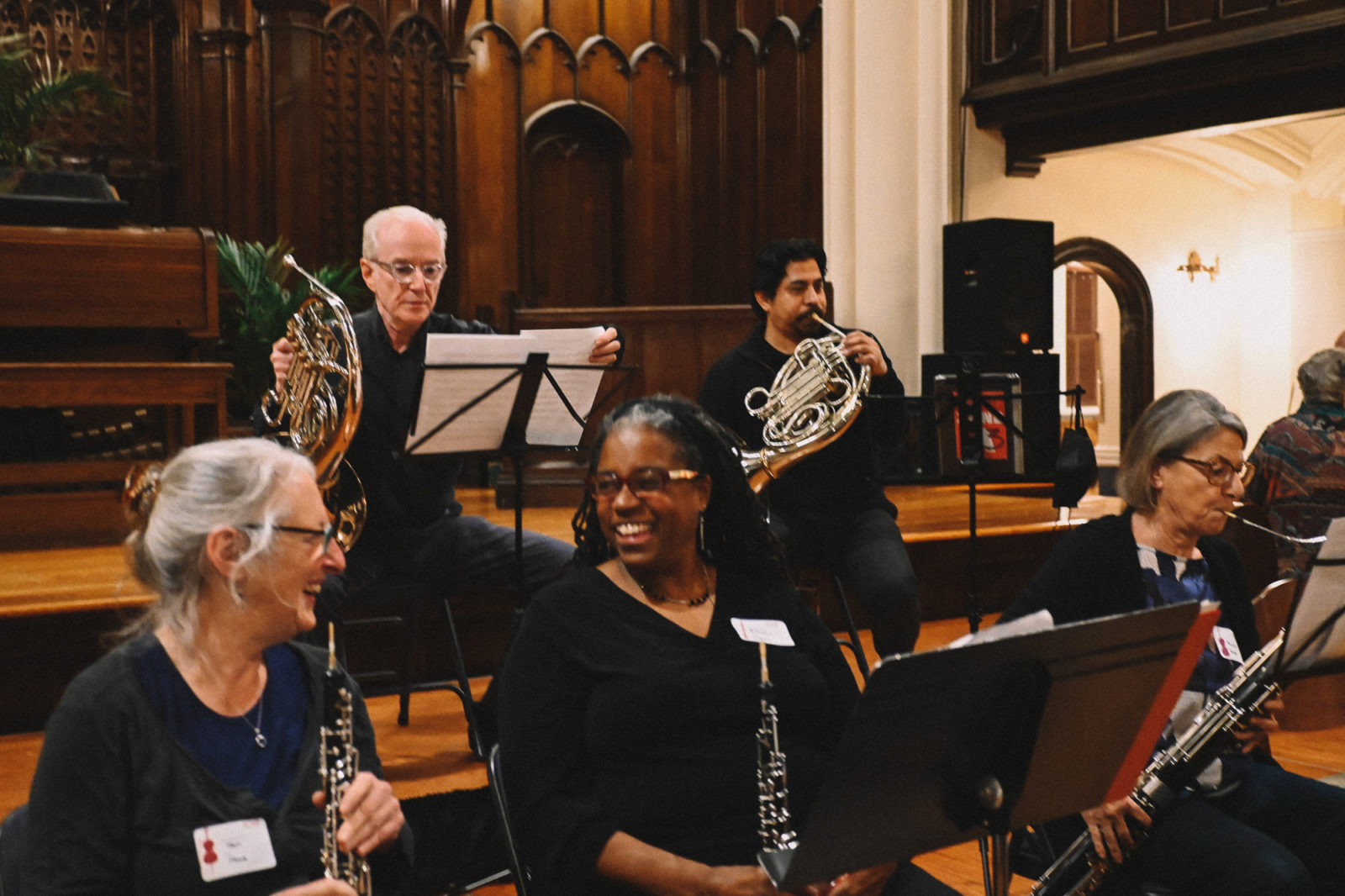
March Winds: Wind Chamber Music Appreciation Month
This March, ACMP is proud to launch "March Winds": Wind Chamber Music Appreciation Month! It's an international grassroots movement to expand the awareness and appreciation of the rich repertoire of chamber music including winds.Read More ↗
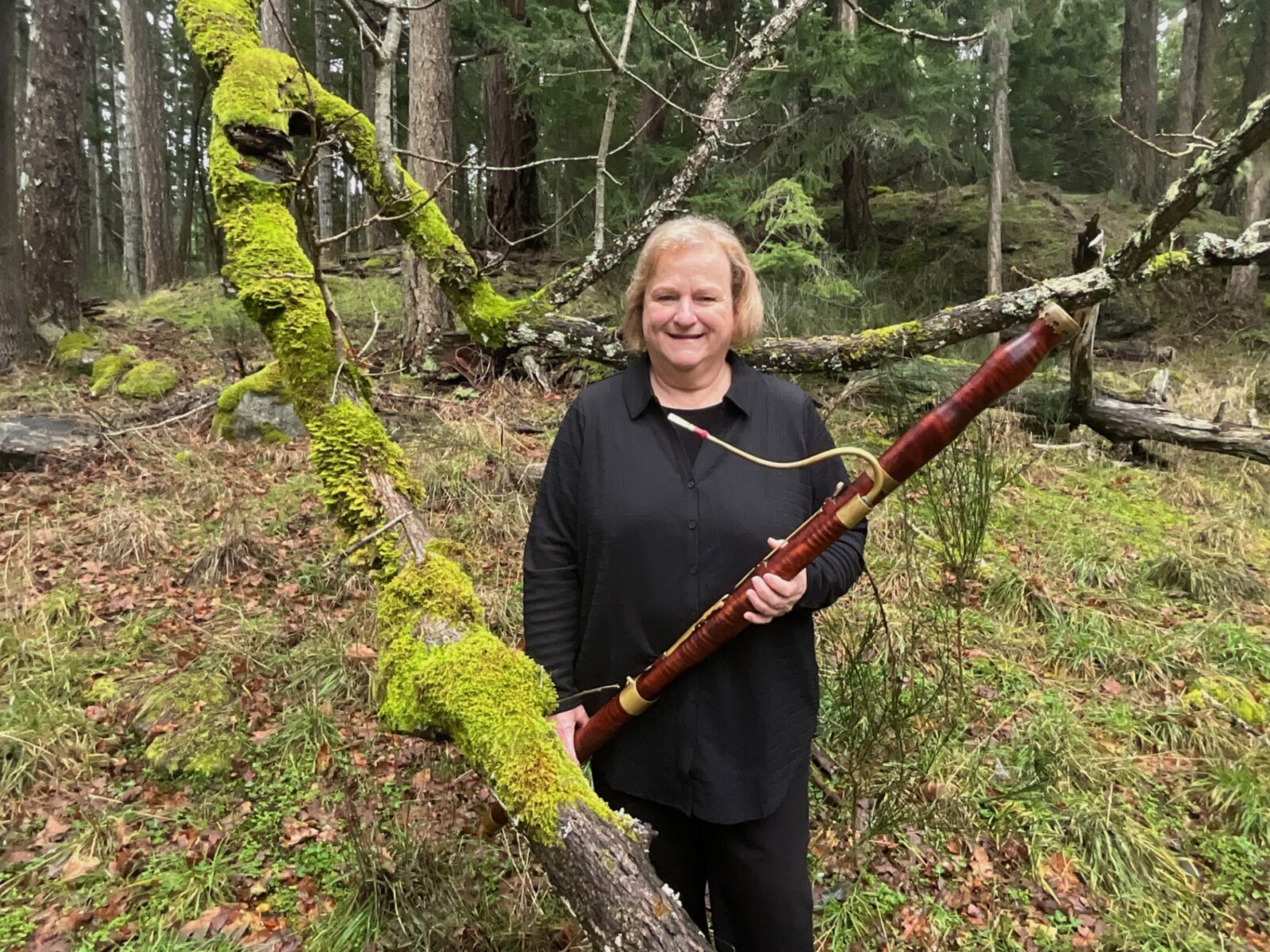
Kerry Graham: It’s never too late to learn the Baroque bassoon
At age 50, Kerry Graham was living what many would consider a rich and full life, working internationally as a chemical engineer and doing pretty well. But music, and especially the bassoon, kept tugging at her sleeve. She wanted to go back to school to learn the bassoon. Read Kerry's interview with ACMP Board chair Bob Goetz.Read More ↗
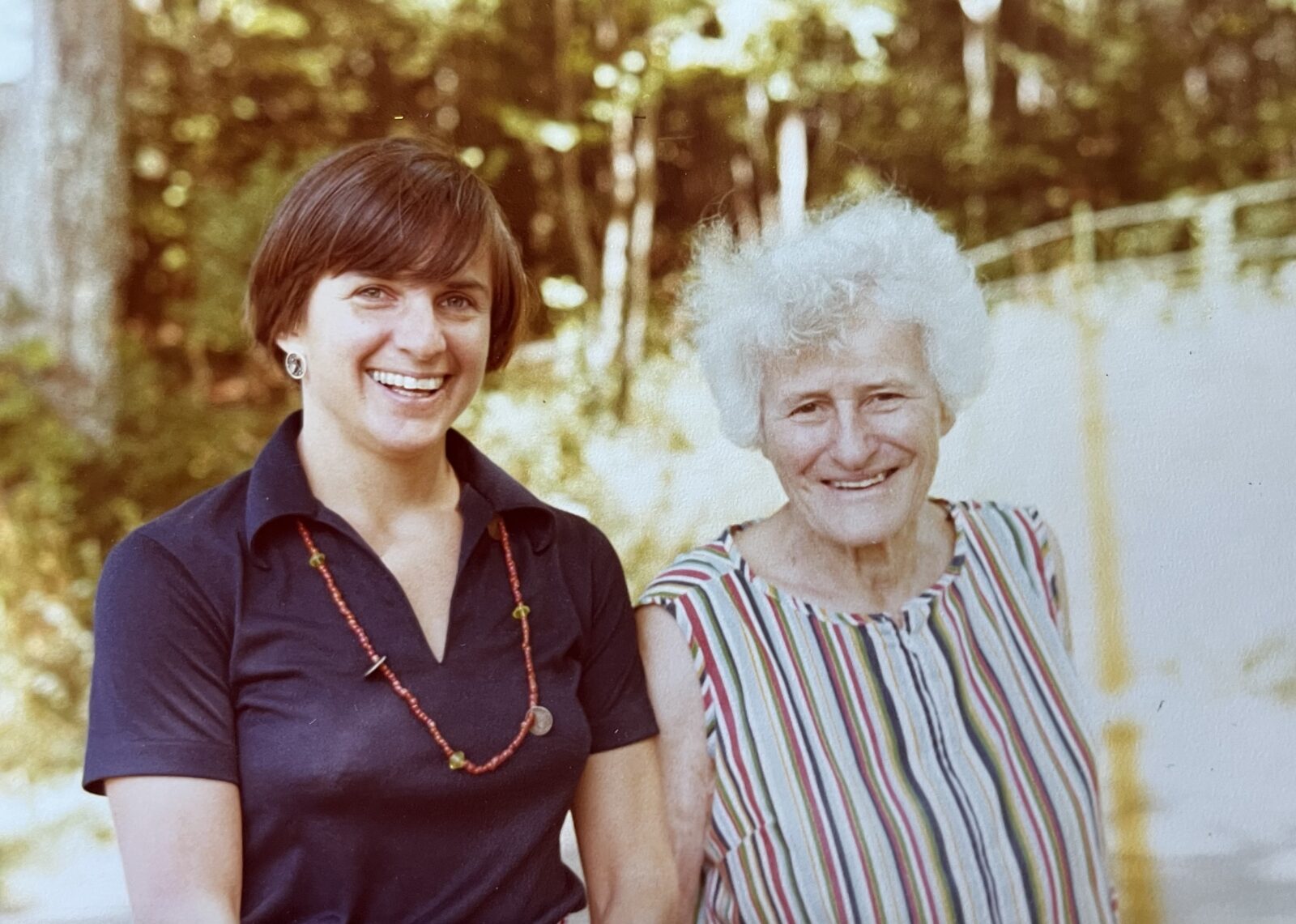
Helen Rice and me!
Professional flutist Jayn Rosenfeld grew up in a family of passionate amateur musicians and had a close personal connection with ACMP's founder Helen Rice. Read Jayn's story about her childhood experiences with some of the early pioneers of ACMP.Read More ↗
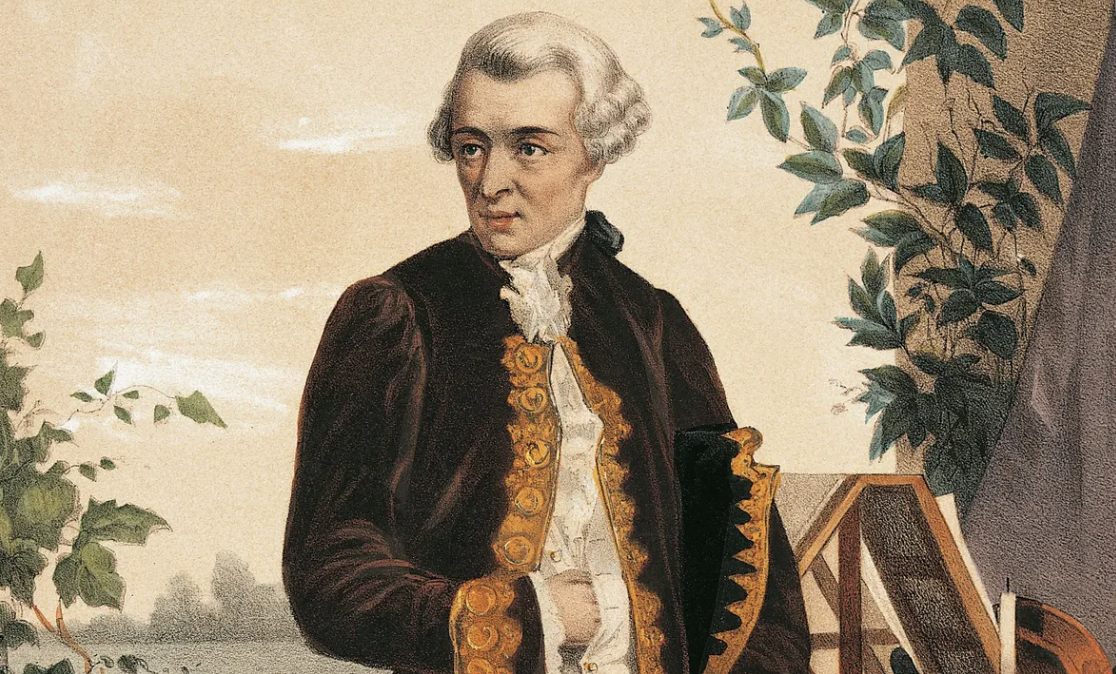
The 2026 ACMP Haydn Challenge
March 31 is Joseph Haydn’s birthday! It’s also a fabulous occasion to celebrate his contributions to the world of chamber music with a gift in his honor to ACMP…Throughout the month of March, we hope you will participate in the ACMP Haydn Challenge.Read More ↗

Irreverent Friends, the True Inspiration Behind Clarinet’s Chamber Music Gems
The Clarinet. When one thinks of the instrument, we are instantly taken on a rich journey of musical landmarks: New Orleans, Rhapsody in Blue, Mozart, Benny Goodman, top orchestras, your cousin’s wedding reception. Chamber music might not be at the top of the list, but indeed, clarinetists have inspired some of the finest pieces in history for the genre.Read More ↗
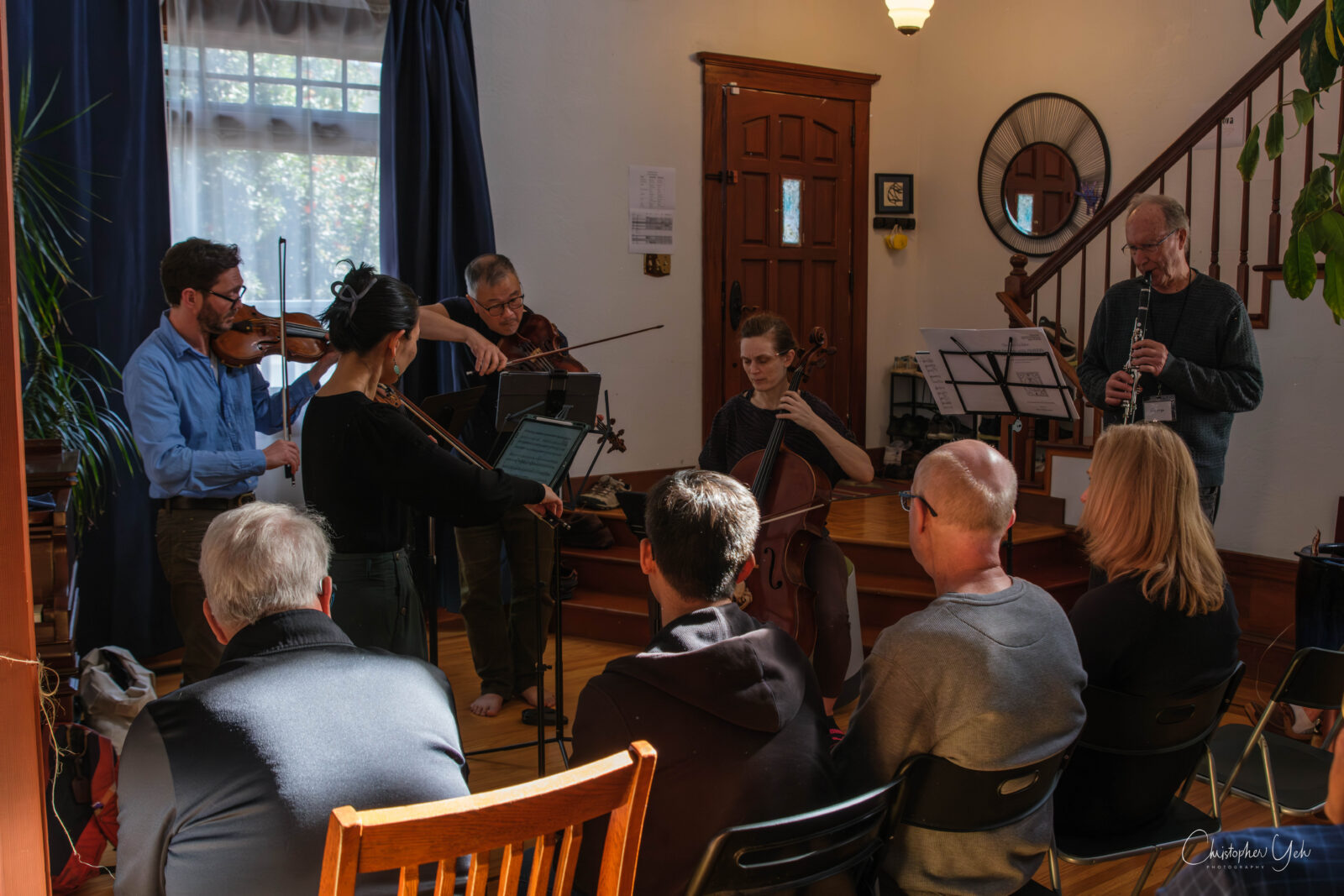
Sound and Sustenance: A Report from the Del Sol Adult Chamberfest
On a sunny weekend last month in San Francisco, 30 amateur chamber musicians from around the country gathered in the home of two members of the Del Sol String Quartet for the annual DEl Sol Adult Chamberfest. Neighbors would have heard strains of Britten, Janáček, Shaw, Golijov, Bunch, Beethoven and Brahms, along with laughter and good times!Read More ↗
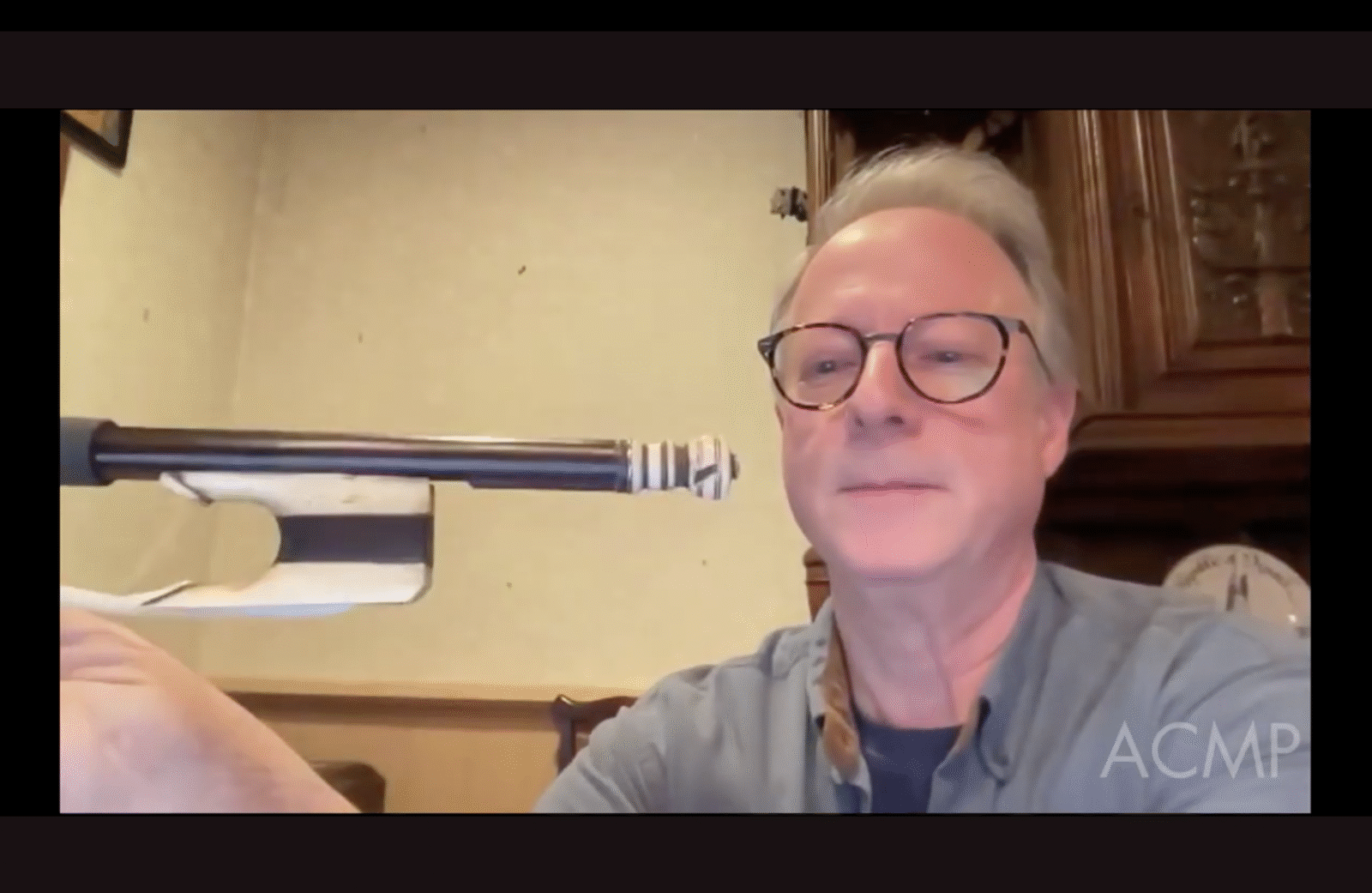
New ACMP video: “Everything you always wanted to know about bows but were afraid to ask” with Gabriel Schaff
ACMP just released the video from Gabriel Schaff's recent online talk, "Everything you always wanted to know about bows but were afraid to ask." After an illuminating presentation on the evolution of the modern bow, the questions kept pouring in. There's so much to learn and discover from Gabriel and your colleagues in ACMP.Read More ↗
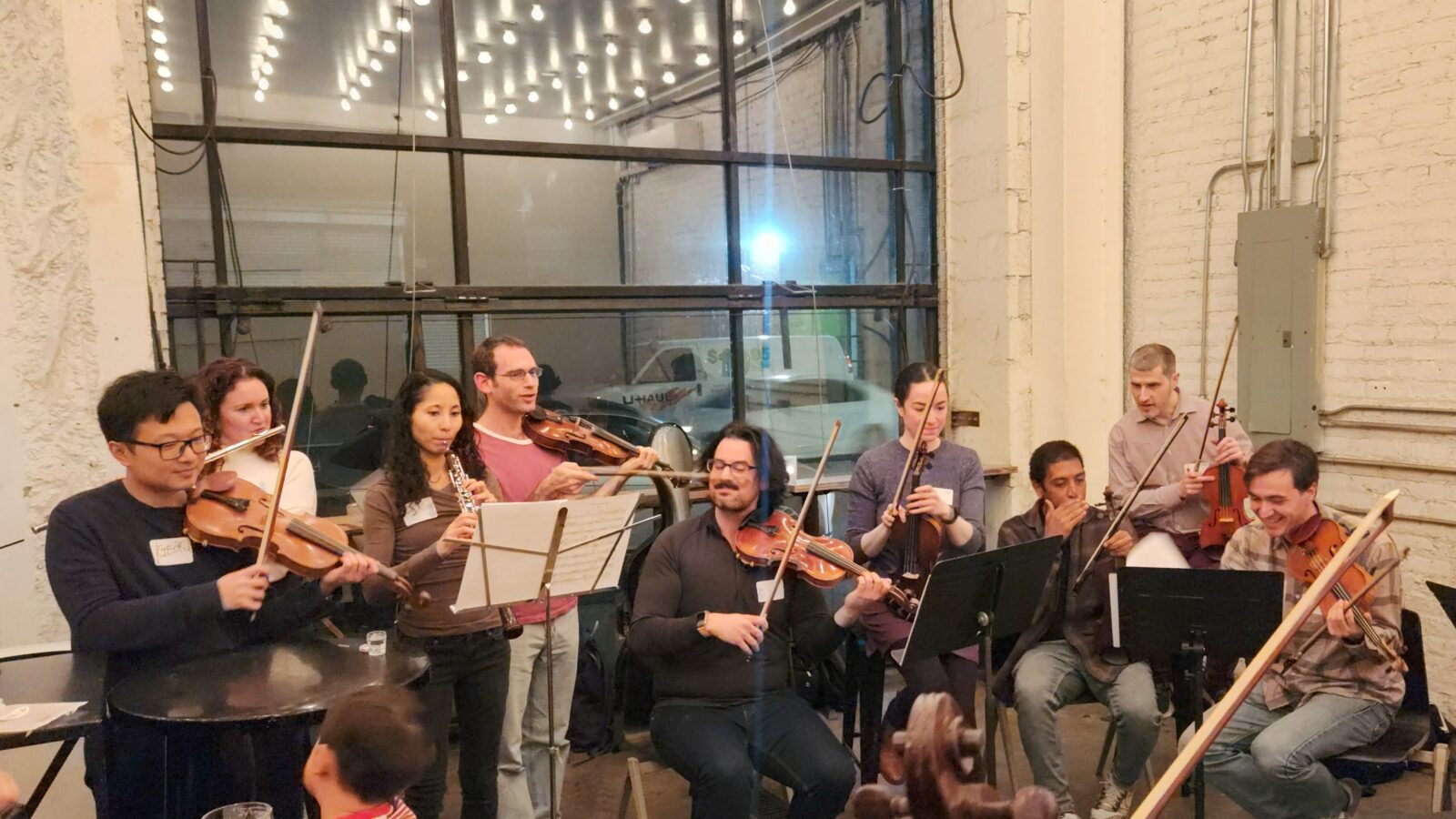
Mozart in a Brewery! Our First Young ACMP Event
Have you ever played Mozart in the middle of a brewery just for fun? That’s exactly what happened in early January when local Young ACMP members met up at Grimm Ales in Brooklyn. We co-hosted the event with ACMP member Ben Bregman, who brought music, friends new to ACMP, and a few of his young students and their parents.Read More ↗
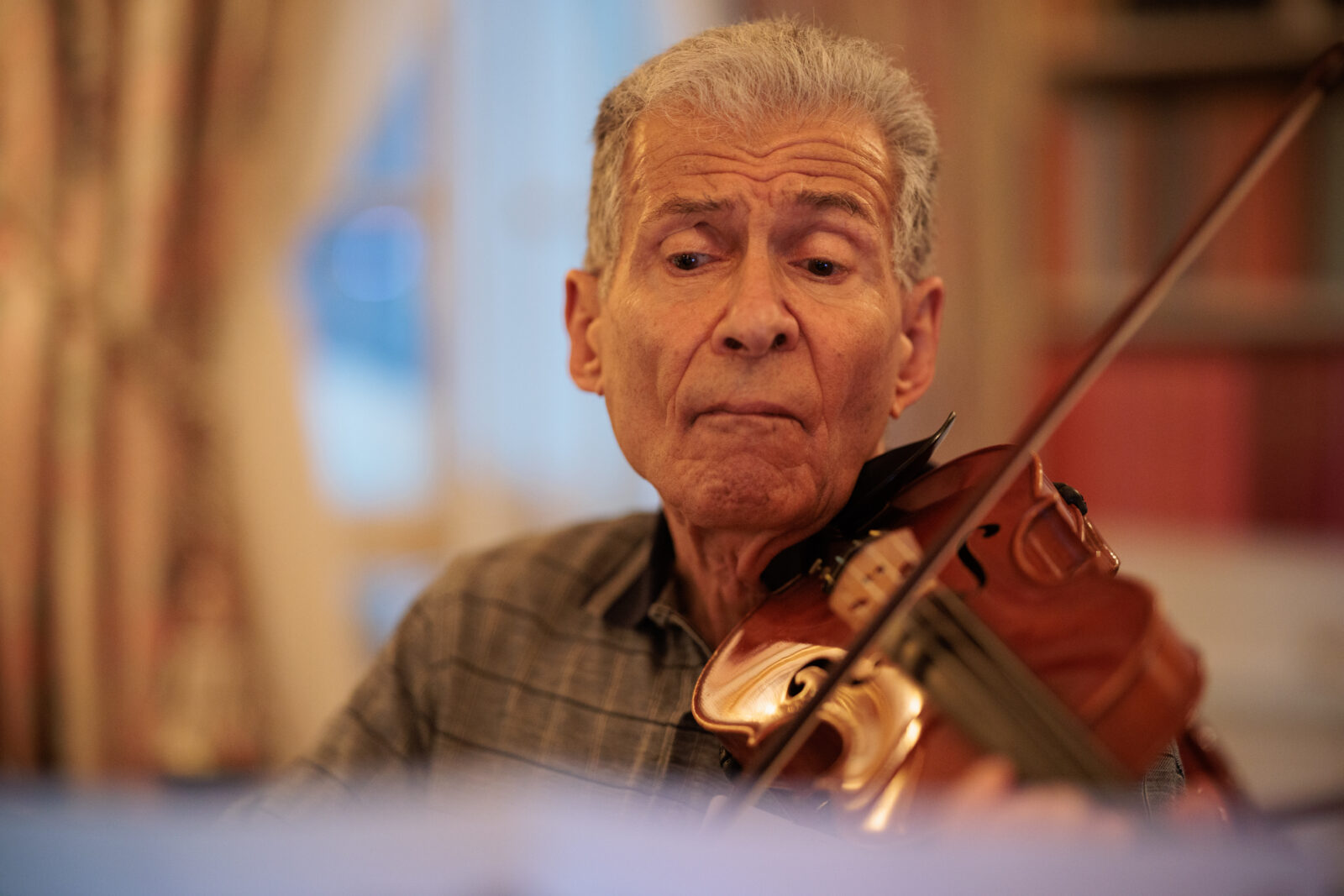
ACMP presents the 2025 Susan McIntosh Lloyd Award to the SoCal Chamber Music Workshop in memory of Ron Goldman
This past Fall ACMP gave its 2025 Susan McIntosh Lloyd Award for Excellence and Diversity in Chamber Music to the SoCal Chamber Music Workshop in honor and in memory of SoCal's founder and long-time ACMP board member Ron Goldman. Watch my interview with Julie Park and read Adam Birnbaum's touching tribute to Ron.Read More ↗
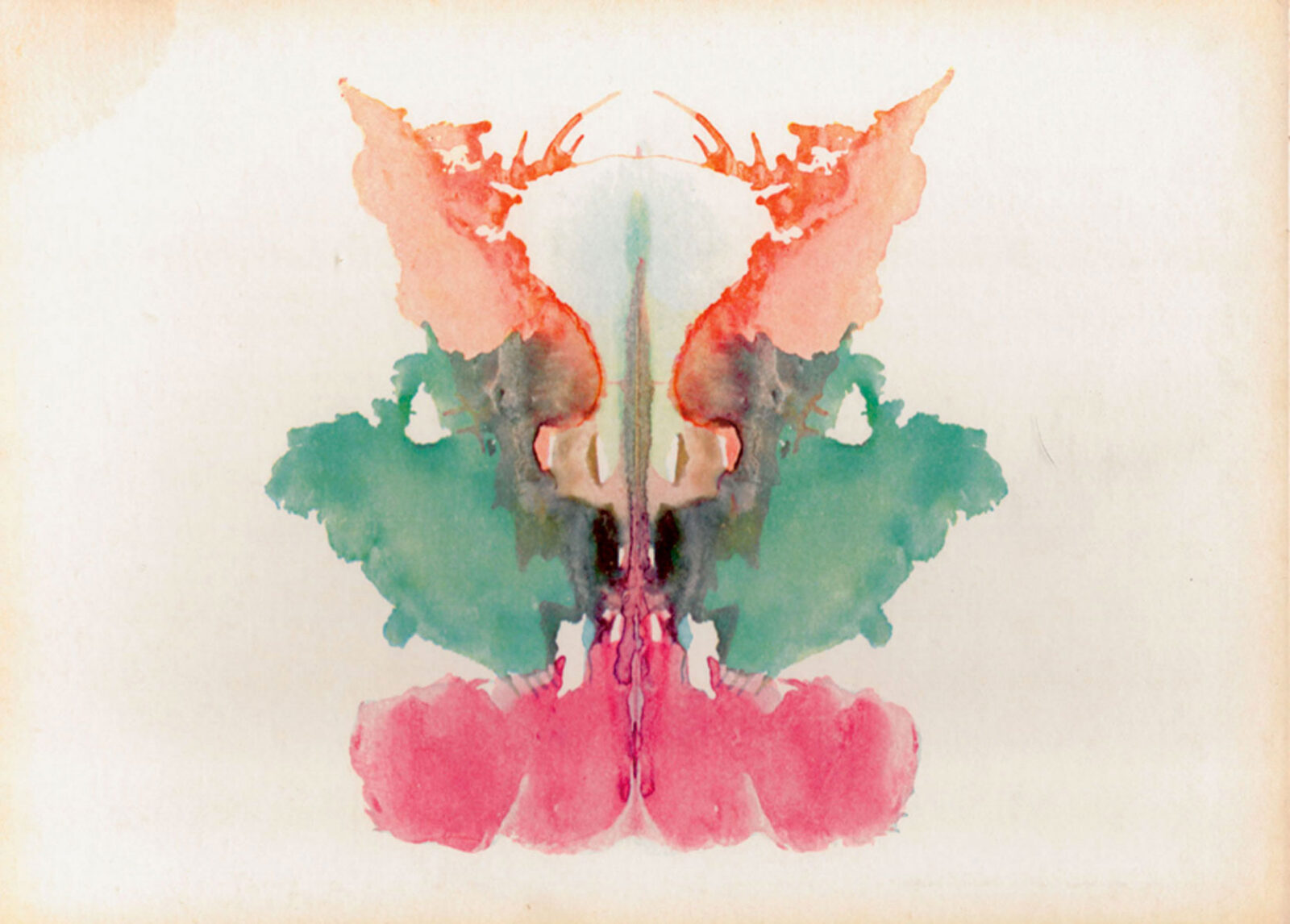
Turning ink blots into music – a discussion on the meaning and madness of notation
Join Cal Wiersma and a live string quartet for an illuminating class about decoding musical notation and translating it back into a musical line, live in Brooklyn and live-streamed on YouTube.Read More ↗

A New 5-Day Summer Home for Adult Chamber Musicians in Brevard
Brevard Music Center is launching the inaugural Adult Chamber Music Workshop, June 3-8, 2026, and we could not be more excited to welcome adult amateur musicians to our beautiful mountain campus in Western North Carolina. The program features focused rehearsal time, inspiring coaching, great colleagues at your stand, and the simple joy of spending time immersed in chamber music.Read More ↗
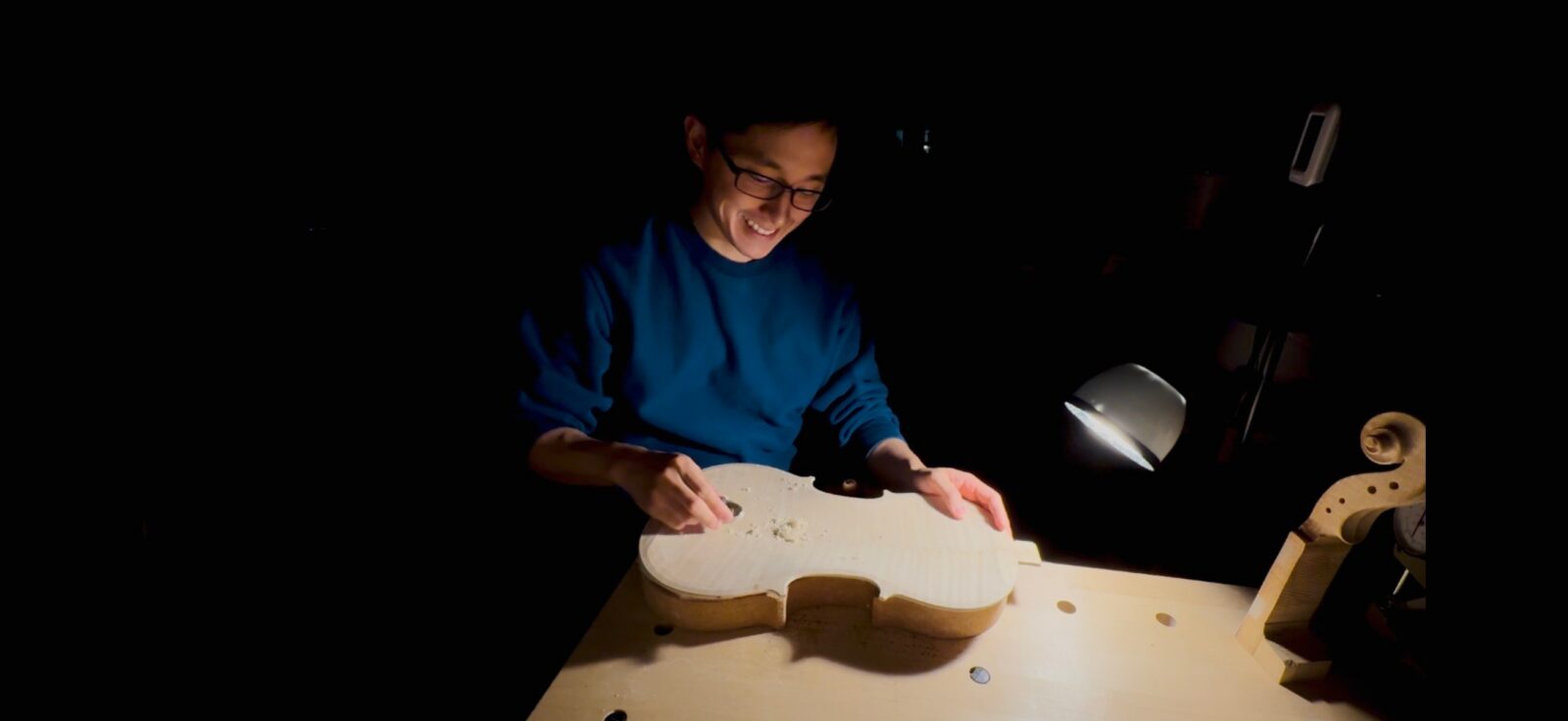
Charles Hsu – oncologist, violist, luthier
Charles Hsu has packed a lot into his 33 years. Born in the New Jersey, he grew up in Taiwan, moved back to the United States to attend MIT, and, after a stint as a management consultant, pursued his medical studies at Yale and Harvard. Today, he is Dr. Hsu, a junior attending medical oncologist at Memorial Sloan Kettering Cancer Center in New York. But through all of these pursuits, there is his love of chamber music.Read More ↗
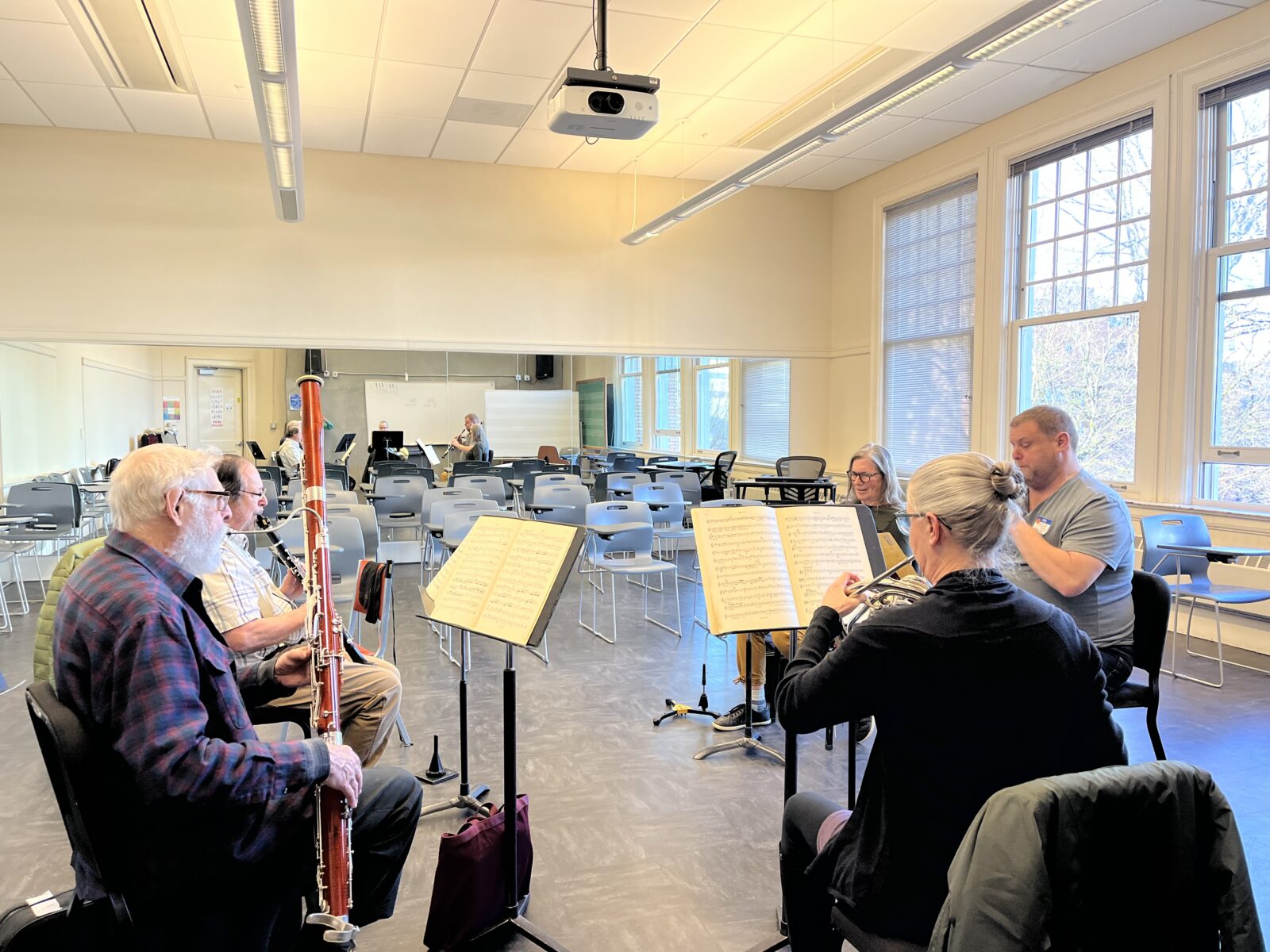
The Oregon-Washington ACMP Play-In
On January 17, 2026, 45 chamber musicians, ages 23-80, met at Portland State University's Music School Hall in Portland, Oregon for a Play-In organized by NAOC councilor Virginia Feldman.Read More ↗
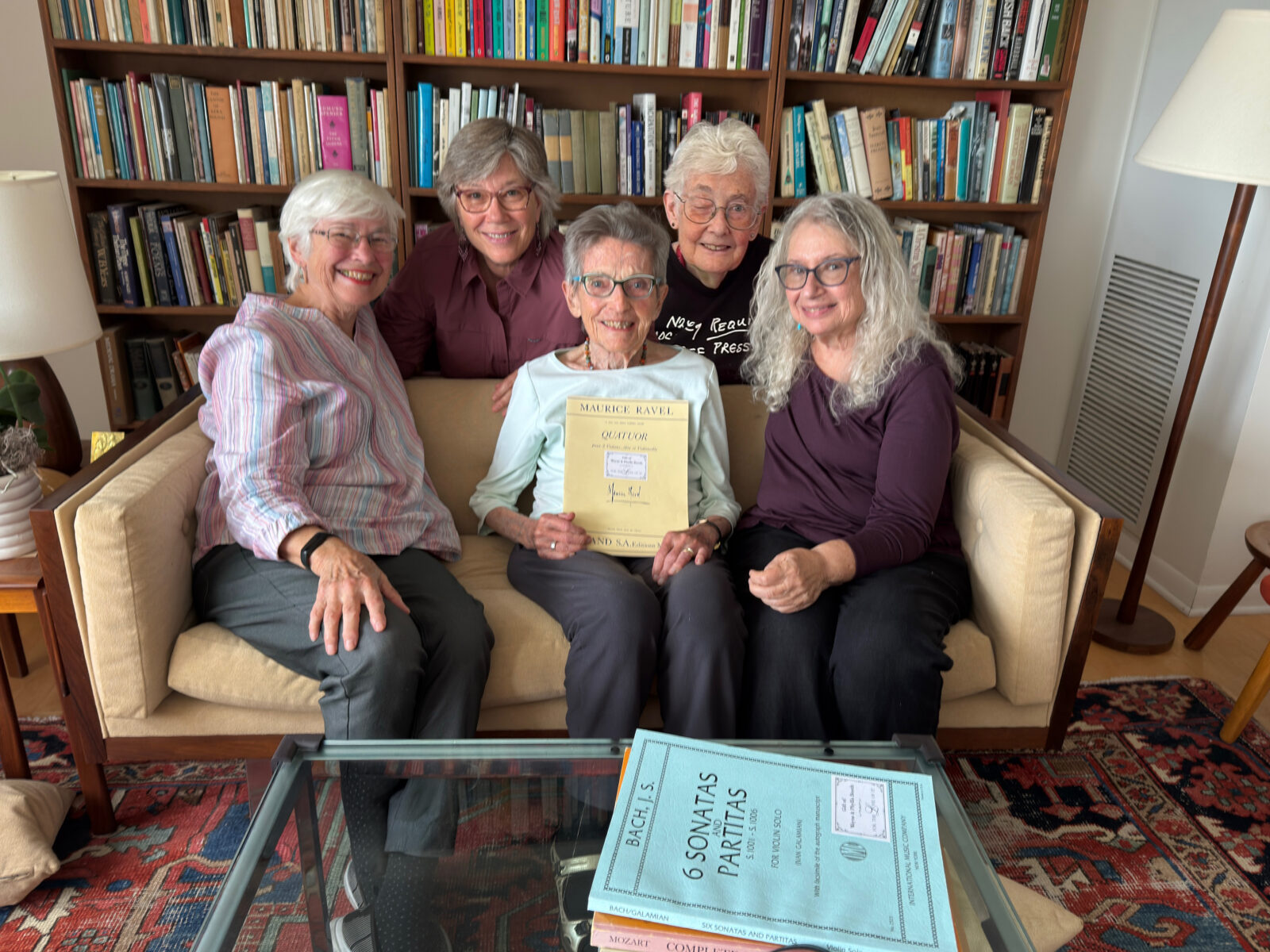
For the Love of It: A Legacy
What to do with all that music, when you finally, reluctantly, stop playing? At 99, Phyllis Booth decided to gift her collection to Golden Chamber Music at Sleepy Hollow, where she and her late husband Wayne Booth had a long, joyful connection since shortly after its founding in 1969.Read More ↗
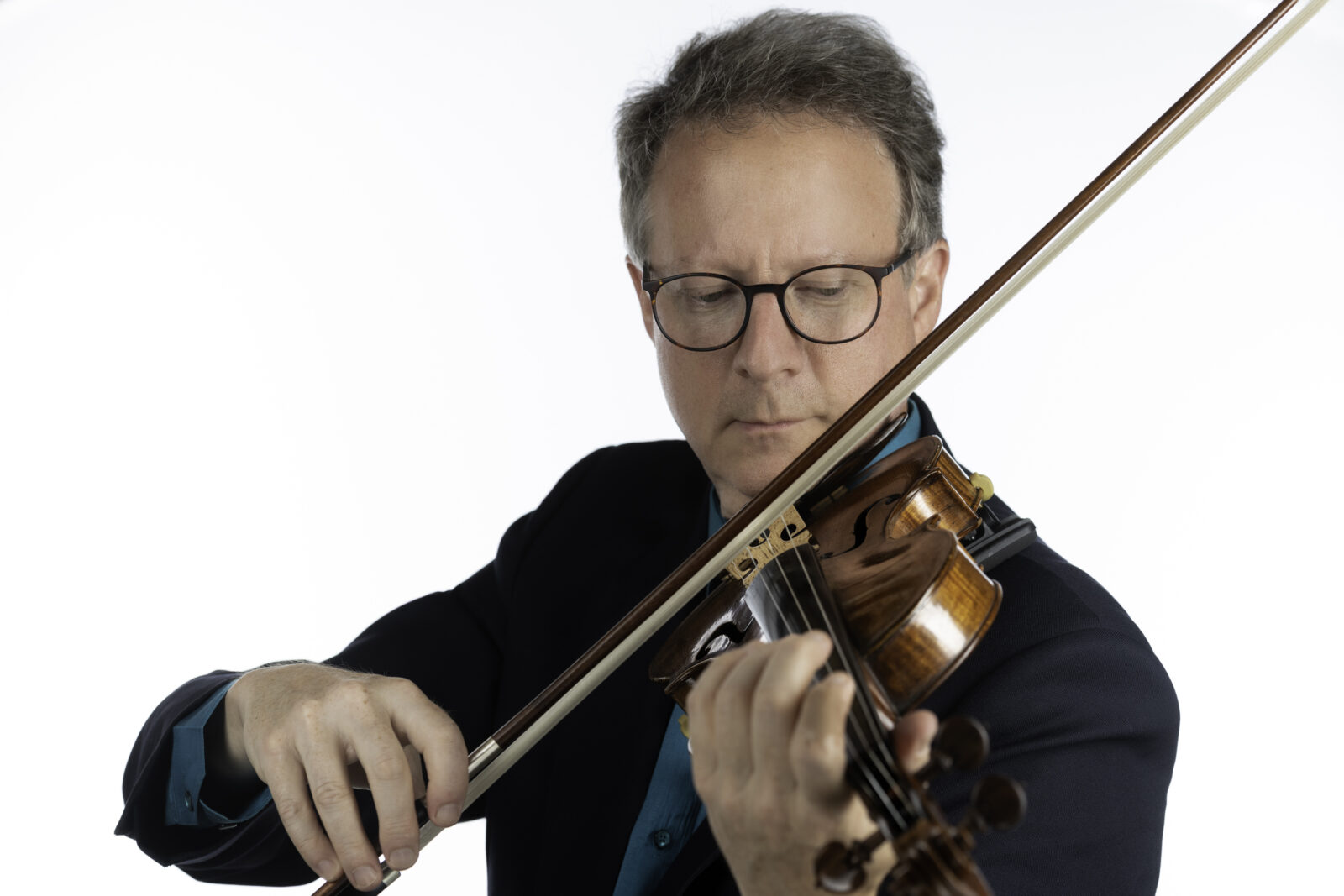
Everything you always wanted to know about bows but were afraid to ask
Join Gabriel Schaff - violinist, scholar and author of "The Essential Guide to Bows of the Violin Family" for an illuminating journey through the history of the bow to everyday tips (no pun intended) about caring for your bow, choosing a new one - and....everything you always wanted to know but were afraid to ask!Read More ↗
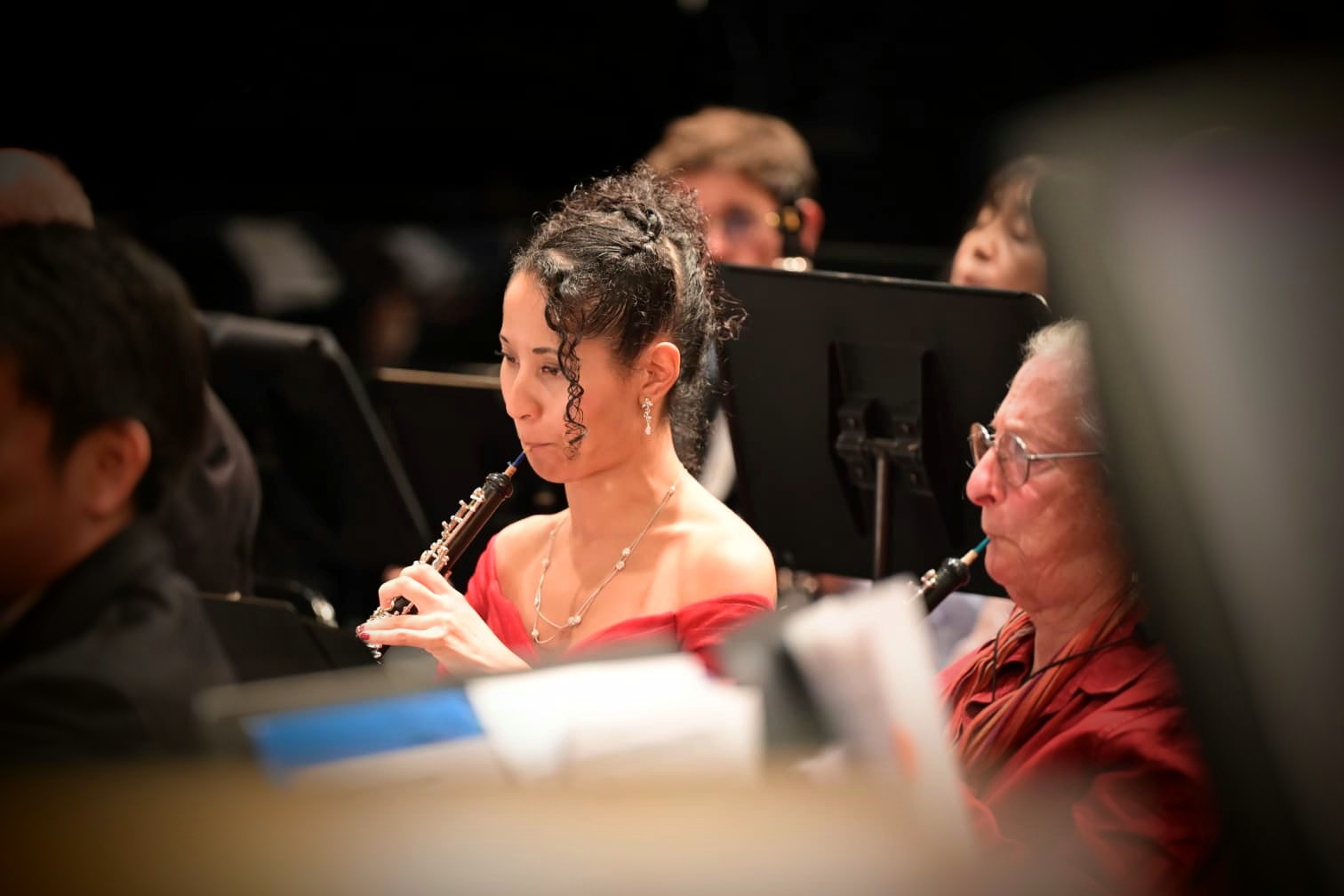
Kayana Jean-Philippe: The serious business of an amateur oboist
When it comes to the oboe, Kayana Jean-Philippe is what you might call a serious amateur – someone who pursues her passion at a high level, but does not make a living at it. One of her most consistent musical outlets has been the United Nations Symphony Orchestra, which she joined 10 years ago and is principal oboist. Another musical outlet is ACMP, which she said has connected her with new people and new musical opportunities.Read More ↗
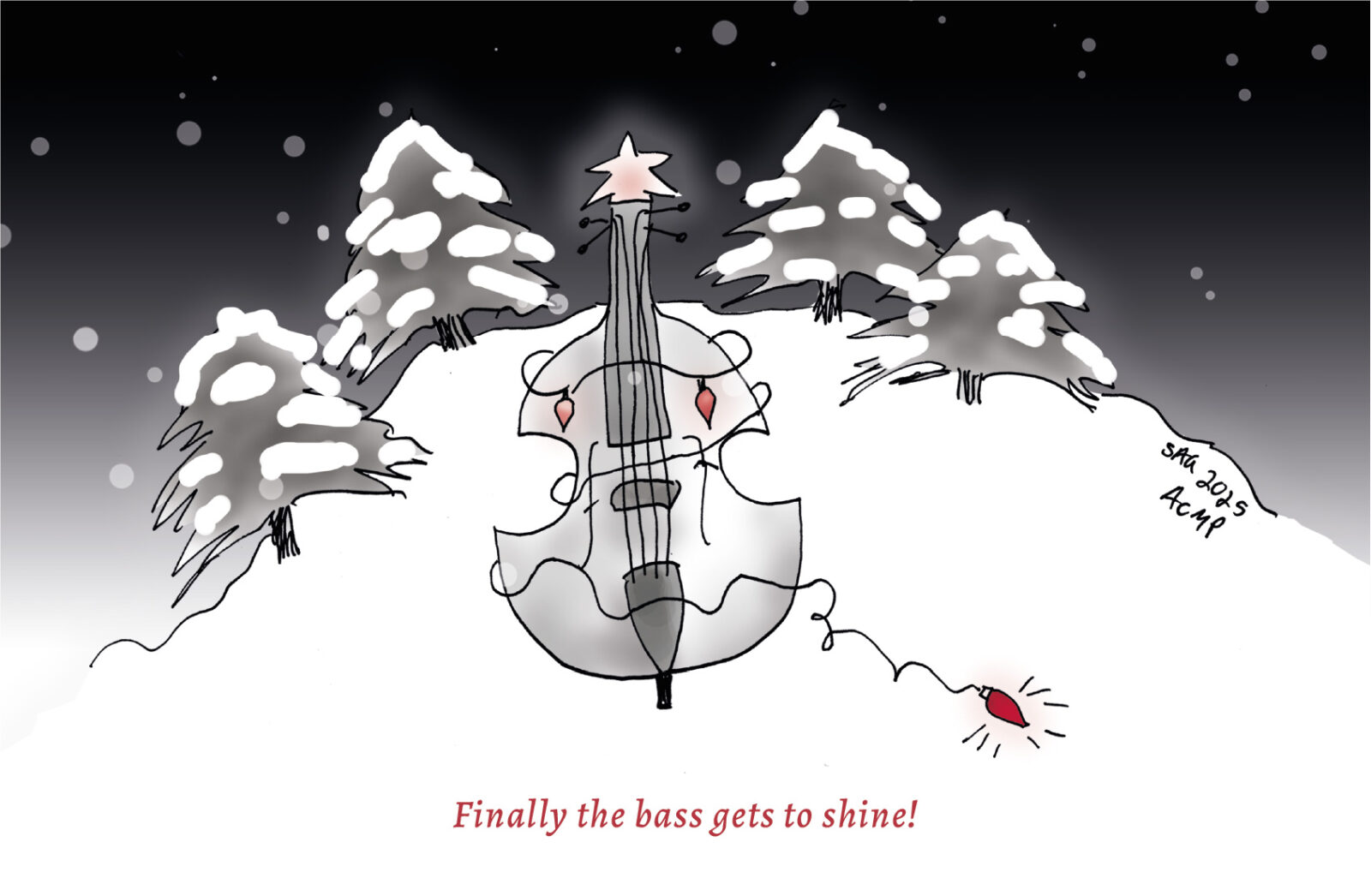
Announcing the 2025 Holiday Caption Contest Winners!
ACMP's 4th annual Holiday Caption Contest was a success, with 69 captions from 41 ACMP members. This year's winners are Valerie Matthews, Peggy Reynolds, and Matthew Greenbaum. Congratulations to everyone who came up with so many wonderful captions for this year's cartoon!Read More ↗
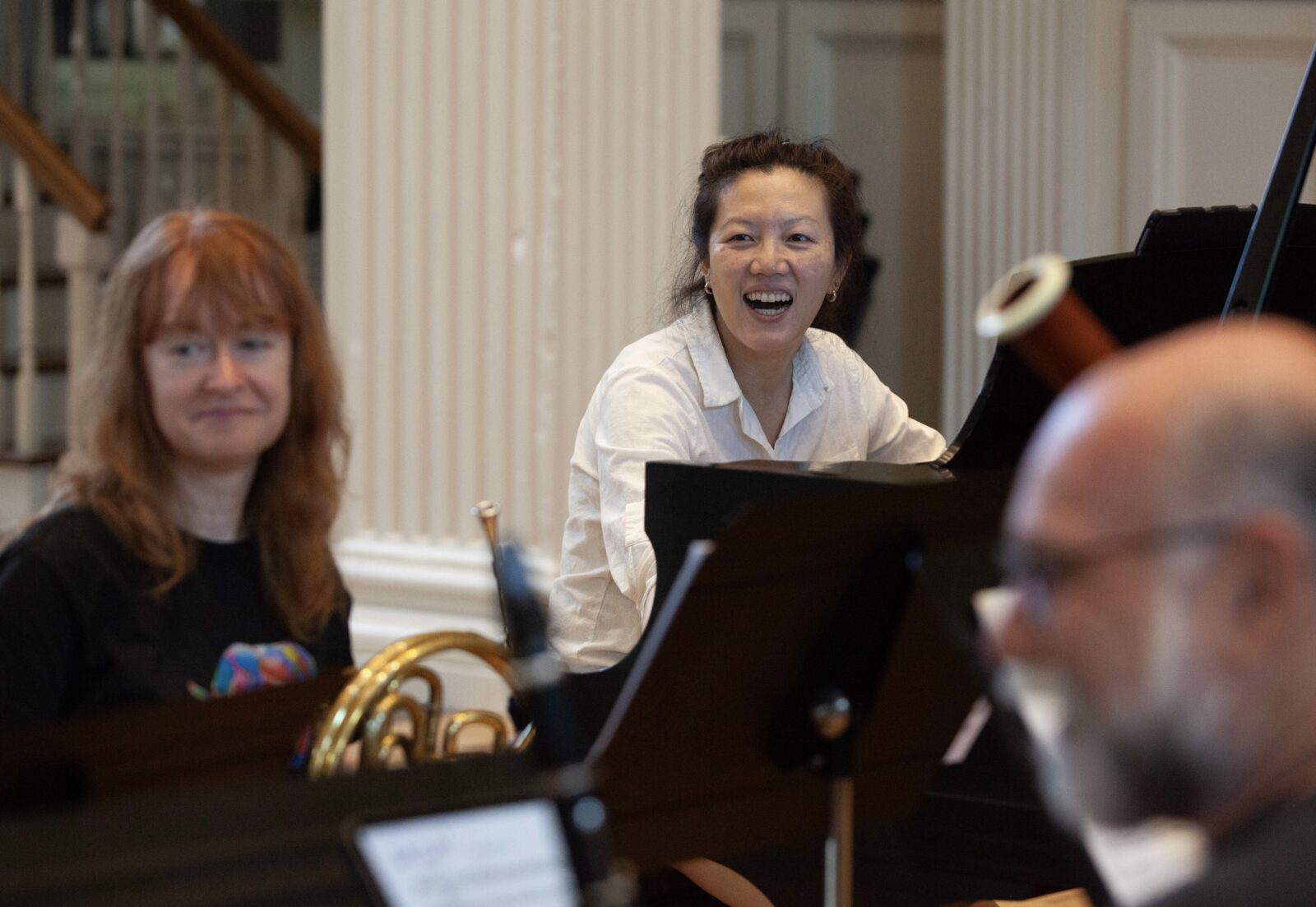
Announcing ACMP’s 2026 Workshop/Community Music Grantees
ACMP is proud to announce its 2026 Chamber Music Workshop and Community Music grantees. This year we awarded $168,000 in grants to 73 chamber music workshops and semester- or year-long programs in 10 countries, and 31 US states. (Photo by Claire Stefani.)Read More ↗

Mystery Donor Reveal: An interview with Louise K. Smith
An anonymous member of ACMP recently spearheaded a fundraising initiative for ACMP in the two week lead-up to Giving Tuesday, offering a $25 gift for each donation received from November 18, 2025 through Giving Tuesday (December 2.) This mystery donor just revealed her identity: Thank you, Louise K. Smith! I asked Louise some questions about her background as a pianist, involvement with ACMP over the years, and about her recent matching grant idea.Read More ↗